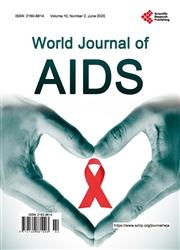Assessment of the Affordability of Out-of-Pocket Payments among Some Selected People Living with HIV in Kano, Nigeria
引用次数: 0
Abstract
Introduction: With an estimated 1.8 million People Living with HIV (PLHIV), Nigeria’s HIV response is still heavily donor dependent. However, with anticipated decline in donor funding for HIV/AIDS program as the country takes ownership of the program, understanding financing options for PLHIV is important. One of such financing options is affordability of out-of-pocket payments (OOP) for anti-retroviral drugs (ARV) by PLHIV. We assessed affordability of OOP payments for ARVs in Kano State, North-Western Nigeria. Methods: Four Hundred and sixty-nine PLHIV receiving donor-supported-free ARV in Kano, North Western Nigeria were systematically selected and interviewed during routine clinic visits. Affordability for ARV was assessed by a combination of variables including willingness and financial means to incur extra expense for full dose of ARV based on landing and distribution cost of 8.3 USD (about 3,000 NGN) per month dose. Results: Four hundred and sixty-nine respondents were interviewed. Of those, 72 (15.4%, 95% CI: [13.2 - 19.7]) can afford ARV OOP on monthly base. The proportion of males able to pay 3,000 NGN (8.3 USD) or more OOP for ARVs was not different from that of women (15.5% versus 15.2%). Attending school, education level, employment, monthly income and wealth have all been found to be associated with willingness and ability to pay for monthly dose of ARV OOP (p < 0.0001). Conclusion/recommendation: Majority of PLHIV in Kano State may not afford ARV OOP in the event of withdrawal of supports by international donors. Innovative sustainable financing mechanisms from domestic resources are needed for HIV program sustainability.对尼日利亚卡诺一些选定的艾滋病毒感染者自费支付能力的评估
引言:据估计,尼日利亚有180万艾滋病毒感染者,其艾滋病毒应对措施仍然严重依赖捐助者。然而,随着国家对艾滋病毒/艾滋病项目的所有权,预计捐助者对该项目的资助将减少,了解PLHIV的融资选择很重要。其中一种融资选择是支付PLHIV抗逆转录病毒药物的自付费用。我们评估了尼日利亚西北部卡诺州抗逆转录病毒药物OOP付款的可负担性。方法:在尼日利亚西北部卡诺,系统地选择了469名接受PLHIV治疗的捐赠者支持的免费抗逆转录病毒药物,并在例行诊所访问中进行了访谈。根据每月8.3美元(约3000 NGN)的着陆和分发成本,通过包括意愿和财务手段在内的变量组合来评估抗逆转录病毒药物的可负担性,以产生全剂量抗逆转录病毒病毒药物的额外费用。结果:共采访了469名受访者。其中,72人(15.4%,95%置信区间:[13.2-19.7])每月可以负担ARV OOP。能够为抗逆转录病毒药物支付3000 NGN(8.3美元)或更多OOP的男性比例与女性比例没有差异(15.5%对15.2%),研究发现,月收入和财富都与支付月剂量抗逆转录病毒药物OOP的意愿和能力有关(p<0.0001)。结论/建议:如果国际捐助者撤回支持,卡诺州的大多数PLHIV患者可能负担不起抗逆转录病毒药OOP。艾滋病毒方案的可持续性需要利用国内资源建立创新的可持续筹资机制。
本文章由计算机程序翻译,如有差异,请以英文原文为准。
求助全文
约1分钟内获得全文
求助全文

 求助内容:
求助内容: 应助结果提醒方式:
应助结果提醒方式:


